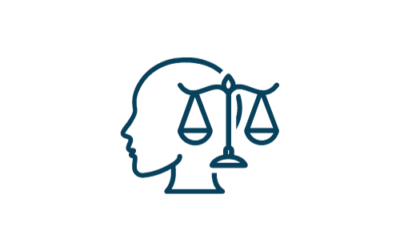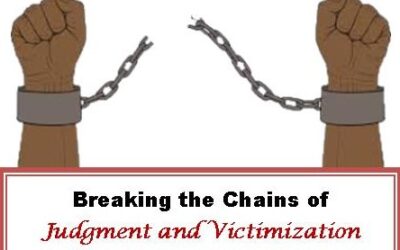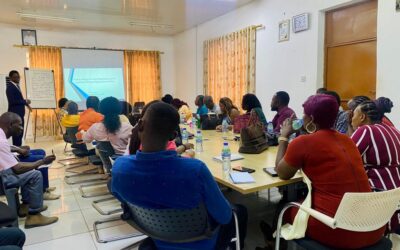Ebola Survivors, Centre for Accountability and Rule of Law file a human rights violation complaint in the ECOWAS Court against the Republic of Sierra Leone
Briefing Paper
Between May 2014 and March 2016, there was an outbreak of an Ebola epidemic in Sierra Leone, which according to the World health Organization (WHO) recorded a total of 14,124 confirmed cases and 3,956 deaths. Many of those deaths included healthcare workers who took on the task of containing the outbreak. The outbreak affected other countries in West Africa, including Guinea and Liberia. The Ministry of Health was tasked with the responsibility to coordinate the country’s response, mobilize and manage resources, and contain the outbreak.
In February 2015, the Audit Service Sierra Leone issued its first “Special Audit” which covered the activities of the Ministry of Health and the Ebola Emergency Operations Center from May to October 2014. The “Special Audit” reported that there had been cases of huge mismanagement, and possible loss of funds meant for the Government of Sierra Leone’s Ebola response. These, according to the Audit Service, led to “a reduction in the quality of service delivery in the healthcare sector.” In other words, mismanagement of the Ebola Funds meant that the response was not as effective as it could have been, and as a result, more infections and deaths occurred.
On 15 December 2017, two healthcare workers who are Ebola survivors, along with the Center for Accountability and Rule of Law in Sierra Leone (CARL-SL), filed a suit against the Government of Sierra Leone before the ECOWAS Court in Abuja, Nigeria. The suit alleges that the mismanagement and possible loss of funds meant for Ebola response directly violated the rights of the plaintiffs to life and health under various international covenants including the African Charter on Human and Peoples’ Rights (African Charter), to which Sierra Leone is a party. This briefing paper explains some of the key issues in this case:
Who are the plaintiffs in this case?
The two individual plaintiffs in this case are Sierra Leoneans who joined the government’s response to the Ebola virus. While attending to patients, they both contracted the Ebola virus due to lack of and/or inadequate protective equipment provided to them by the authorities. They both survived the virus but continue to deal with the numerous health, physical and psychological challenges confronted by survivors of the Ebola virus.
The Centre for Accountability and Rule of Law (CARL) is a Sierra Leonean civil society organisation, which is committed to promoting human rights through accountability. Established more than 10 years ago, CARL has supported both international and domestic accountability mechanisms aimed at ensuring justice for atrocity crimes committed during Sierra Leone’s 11-year conflict. In the last 5 years, CARL has worked with Switzerland based Civitas Maxima to file suits against businessmen Ibrahim Balde and Michel Desaedeleer for their roles in the use of blood diamonds to finance Sierra Leone’s civil war. CARL has also supported a violation of right to education case in Sierra Leone’s domestic courts against the country’s Ministry of Education for its decision to shut down a private school. CARL continues to advocate for redress for victims of various human rights violations in Sierra Leone.
What are the key claims in this case?
The plaintiffs’ claim in this case are:
- That the government violated its citizens’ right to life by failing to adhere to relevant accounting and procurement controls which led to the mismanagement and possible loss of one third of the available resources, and was responsible for a greater number of deaths from Ebola than would otherwise have occurred.
- That the government violated its citizens’ right to health by failing to dedicate maximum available resources to the Ebola response, and that the Government’s poor stewardship of the Ebola funds diminished the human and physical resources needed to handle the Ebola outbreak. This included the lack of healthcare workers, ambulances, basic medical supplies, and post-Ebola medical and psychosocial support.
- That the government has failed to conduct an effective investigation into the violations of the right to life and the right to health caused by mismanagement of the Ebola funds, and that such investigations are essential to ensure accountability and prevent future violations.
What were the key findings of the report of the Audit Service Sierra Leone?
According to the Audit Service’s report of February 2015, the Ministry of Health mismanaged available resources to combat Ebola in Sierra Leone. The Audit Service found that, during the audit period, Sierra Leone spent more than Le 84 billion in direct donations and tax revenue purportedly on PPEs, medical supplies, consumables, and hazard pay to healthcare workers. It concluded, however, that lapses in financial management systems in Sierra Leone had resulted in “loss of funds and reduction in the quality of service delivery in the health sector.”
According to expert analysis undertaken by CARL, these lapses identified by the Audit Service resulted in inadequate medical supplies and Ebola treatment centres; failure to make hazard payments; inadequate domestic and international coordination; and poor accountability and transparency.
How did the government respond to the findings of the Sierra Leone audit service?
The Public Accounts Committee (PAC) of the Sierra Leone Parliament reviewed the findings of the Auditor General through public hearings and interviews. In its report released in June 2015, the PAC concluded that officials responsible for management of Ebola funds failed to apply necessary laws relating to procurement. The PAC also found that there were inadequate controls over disbursement of funds from Ebola response accounts.
However, the government has failed to conduct an effective investigation into the violations of the right to life and the right to health caused by mismanagement of the Ebola funds. Such investigations are essential to ensure accountability and prevent future violations.
What remedies do the plaintiffs want?
In the application before the ECOWAS Court, the plaintiffs have requested the following remedies:
- A declaration that Sierra Leone’s mismanagement of the Ebola Funds violates the right to life under Article 4 of the African Charter on Human and Peoples’ Rights (African Charter) and Article 6 of the International Covenant on Civil and Political Rights (ICCPR);
- A declaration that Sierra Leone’s mismanagement of the Ebola Funds violates the right to health under Article 16 of African Charter and Article 12 of the International Covenant on Economic Social and Cultural Rights (ICESCR);
- A declaration that Sierra Leone’s failure to investigate and provide redress for mismanagement of the Ebola Funds constitutes continuing violations of the rights to health and life, as guaranteed under Articles 1, 4 and 16 of the African Charter, Article 6 of the ICCPHR, and Article 12 of the ICESCR;
- An order compelling Sierra Leone to undertake a comprehensive review of compliance with relevant financial reporting, internal controls, and procurement regulations, with a view to ensuring effective use of financial resources in times of national emergency;
- An order compelling Sierra Leone to establish a commission of inquiry to investigate any civil or criminal liability arising from mismanagement of the Ebola Funds;
- General and special damages for pecuniary and non-pecuniary losses to be paid to Applicants and all similarly situated persons as compensation for violations of their rights to life and health.
What is the ECOWAS Court?
The ECOWAS Court is the judicial organ of the Economic Community of West African States (ECOWAS). The Court, which has its headquarters in Abuja, Nigeria, has jurisdiction over disputes relating to the ECOWAS treaty, its protocol, and international conventions that a state is a party to. The Court also has jurisdiction over complaints of alleged human rights violations from individual citizens of the ECOWAS member states. Unlike other regional human rights mechanisms, there is no requirement for individuals to exhaust domestic remedies before they can access the Court.
The ECOWAS Treaty creates an international legal obligation that states parties voluntarily undertake to respect. Sierra Leone is one of 15 ECOWAS member states that created the ECOWAS Court of Justice in 1991. In 2005, Sierra Leone also joined other ECOWAS member states to adopt the ECOWAS Supplementary Protocol, which granted the ECOWAS Court jurisdiction over human rights claims and for individuals of member states to access the Court directly without the need for exhaustion of local remedies.
The ECOWAS Treat, along with the Protocol on the Community Court of Justice both provide that the decisions of the ECOWAS Court are binding on states. The Protocol further obliges states to take necessary and immediate measures to ensure the execution of the Court’s decision.
Now that the plaintiffs have filed the case, how will the ECOWAS court proceed with the matter?
- The Registry of the ECOWAS Court will serve the application on the Government of Sierra Leone. After which, the Government of Sierra Leone will have the opportunity to submit a response to the application;
- The ECOWAS Court is an oral court and will therefore conduct oral hearings for the parties to the proceedings (lawyers for the plaintiffs and the Government of Sierra Leone) to make oral submissions before the judges of the ECOWAS Court;
- The ECOWAS Court judges could hear oral evidence from the plaintiffs and other witnesses, including experts; such hearings could take place either at the Court’s headquarters in Abuja, Nigeria or in any member state where the Court might decide to hold hearings. After such hearing, the judges will arrive at a decision based on the evidence before them.
- If the ECOWAS judges rule in favour of the plaintiffs and order parts or all of the remedies sought, it will be the responsibility of the Government of Sierra Leone to implement the said ECOWAS Court ruling in line with the Court’s legal instruments, which Sierra Leone has made commitments to honor.
How long will the case last before the ECOWAS Court?
It is not clear how long the case will last before the ECOWAS Court. Previous cases have taken anywhere from less than one year to several years.
For further information, contact:
Ibrahim Tommy, Executive Director, CARL: Email: ibrahim.tommy@gmail.com
Michael Imran Kanu Esq: Counsel for plaintiffs: Email: michaelimrankanu@gmail.com
Gaye Sowe, Executive Director, Institute for Human Rights and Development in Africa: Counsel for the plaintiffs: Email: gsowe@ihrda.org



